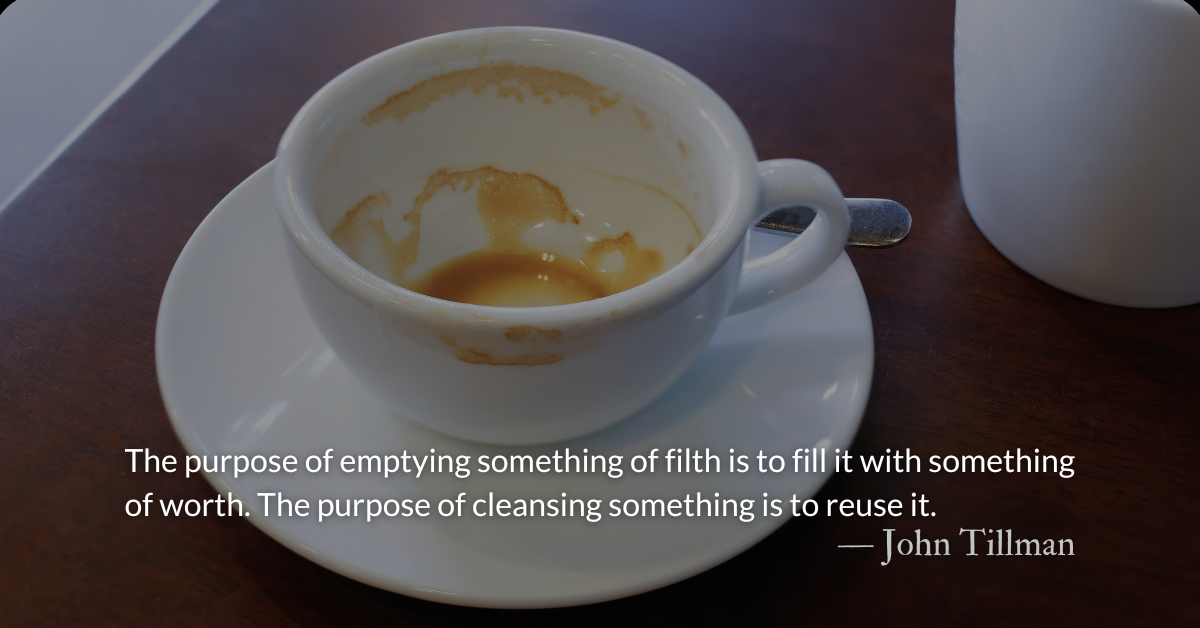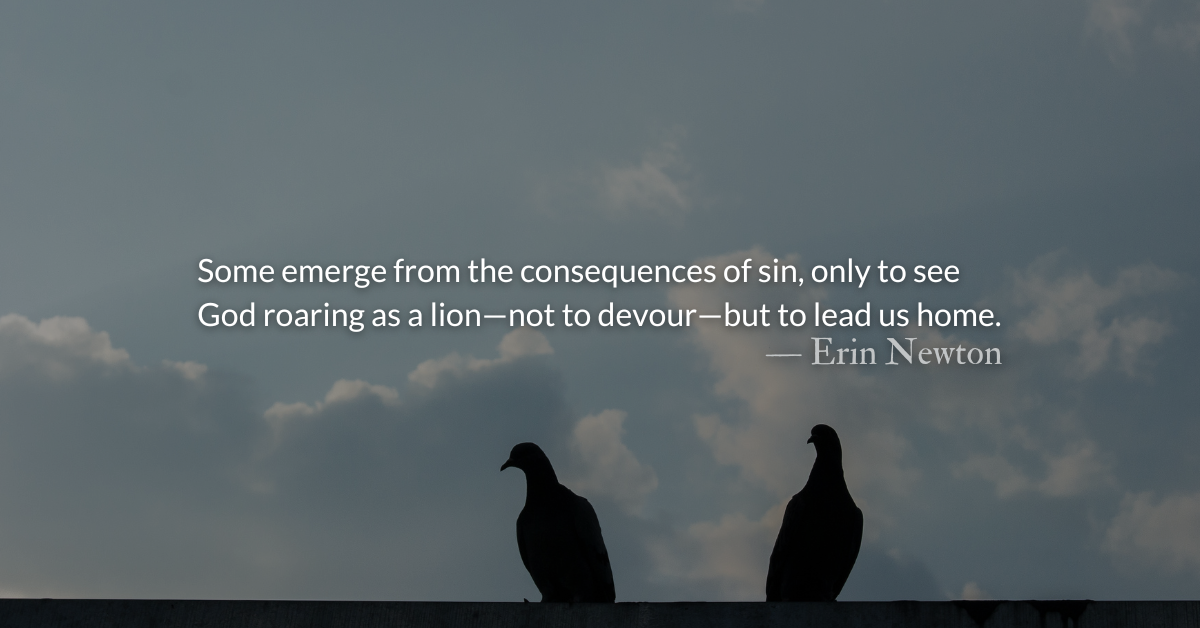Scripture Focus: Jeremiah 13.22-27
22 And if you ask yourself,
“Why has this happened to me?”—
it is because of your many sins
that your skirts have been torn off
and your body mistreated.
23 Can an Ethiopian change his skin
or a leopard its spots?
Neither can you do good
who are accustomed to doing evil.
24 “I will scatter you like chaff
driven by the desert wind.
25 This is your lot,
the portion I have decreed for you,”
declares the Lord,
“because you have forgotten me
and trusted in false gods.
26 I will pull up your skirts over your face
that your shame may be seen—
27 your adulteries and lustful neighings,
your shameless prostitution!
I have seen your detestable acts
on the hills and in the fields.
Woe to you, Jerusalem!
How long will you be unclean?”
Reflection: The Purpose of Godly Shame
By John Tillman
Wails pierce the air. “Why is this happening to me?” asks the child with the broken toy.
“Because you broke it,” answers the parent.
The empty-handed child screams. Does the parent love her child? Of course.
God is Jerusalem’s parent. He patiently gave her everything she needed and called her to a high purpose. Instead, they became accustomed to evils and abuses common in other nations and abandoned the ways of the Lord. They had not just broken something inconsequential, like the toy in the example above. They had broken actual human lives and destroyed and corrupted the holiness of God’s Temple and their covenant with him.
God anticipated that when consequences of their actions arrived, the people of Jerusalem would cry like the careless child, “Why has this happened to me?”
Like the Jewish nation God established, we are intended to “image God” to the world. We show the world God’s face and are called “the body of Christ.” Too often our “body of Christ” is weak, ineffective, and corrupted. Too often the face of God we show is wrathful and unforgiving. God will set out, just as he did with Jerusalem, to expose hypocrisy and abuse. When this happens we might cry in shame, “Why is this happening to us?”
Godly shame recognizes the gulf between our identity and our actions. However, God does not intend to leave us shamed. God is not an abusive parent. When we cry, even from self-inflicted wounds, he cares. The answer to “Why is this happening to us?,” is only partially, “because of your many sins.” (Jeremiah 13.22) The deeper answer is, “So I can restore you and fill you with good things.”
God promises to wipe out Jerusalem like a dish, leaving it upside down and empty. (2 Kings 21.13) The purpose of emptying something of filth is to fill it with something of worth. The purpose of cleansing something is to reuse it.
No matter how corrupt our hearts become, on the other side of confession is restoration and freedom from shame. If we allow him to empty us of pride, he will fill us with honor. If we allow him to empty us of sin, he will fill us with righteousness. If we allow him to empty us of cultural poisons, he will fill us with living water. We can then pour these offerings out to bless all those around us.
Divine Hours Prayer: The Refrain for the Morning Lessons
Happy are they whose transgressions are forgiven, and whose sin is put away!
Happy are they to whom the Lord imputes no guilt, and in whose spirit there is no guile! — Psalm 32.1-2
– From The Divine Hours: Prayers for Summertime by Phyllis Tickle.
Today’s Readings
Jeremiah 13(Listen -4:11)
Galatians 4(Listen – 4:13)
This Weekend’s Readings
Jeremiah 14(Listen -3:51), Galatians 5(Listen – 4:39)
Jeremiah 15(Listen -3:22), Galatians 6(Listen – 2:18)
Read more about From Shameless to Blameless
Are we shamelessly sinful, defending our sins? Or are we humbly repentant, called blameless ONLY in Christ?
Readers’ Choice is Coming!
What posts from the past 12 months strengthened your faith? Share them with us and we’ll reshare them.







